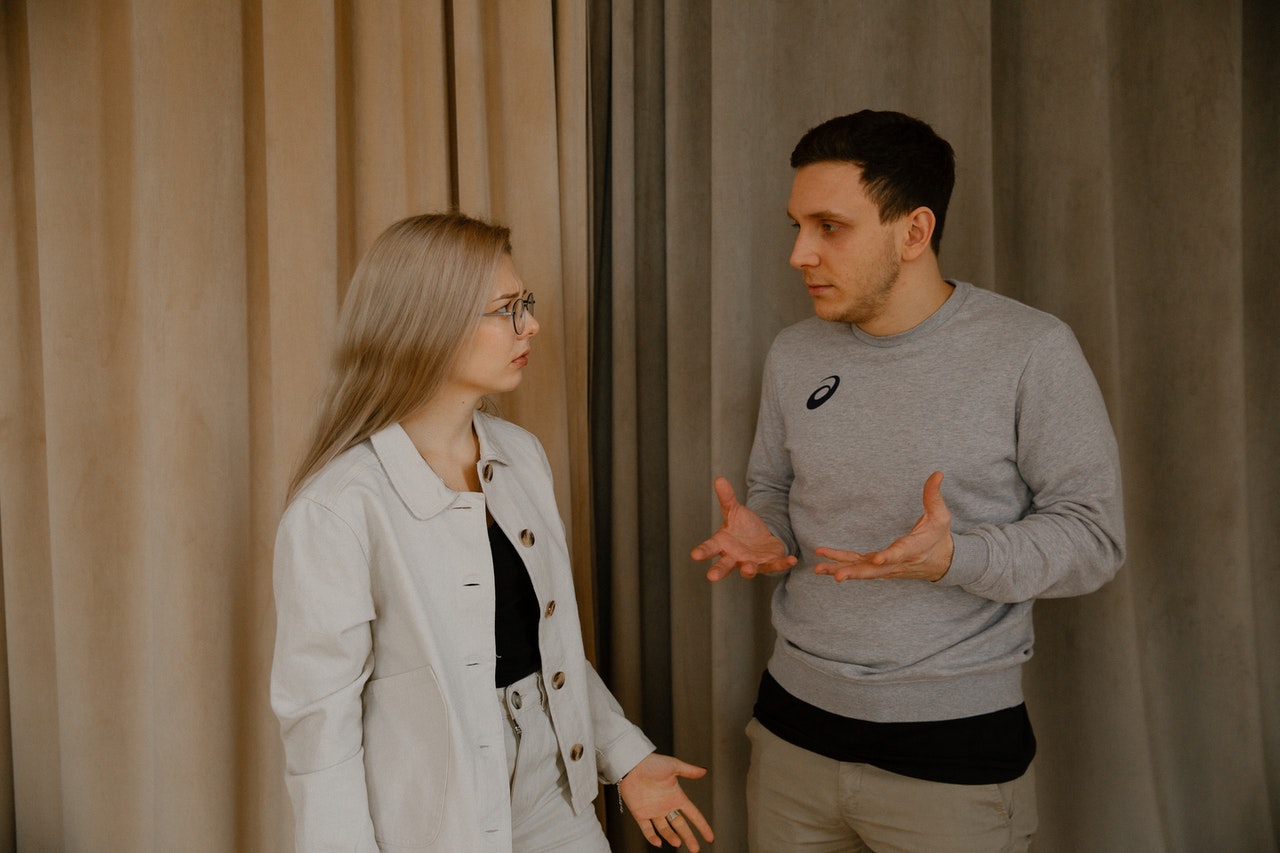
When Things Don't Go Smoothly
We would like for our relationships to go without friction, but obstacles often arise. Our partners or friends may cause the difficulties but sometimes we are responsible. It is easy for us to see faults in others but we often remain blind to our own. While our attempts to change others rarely work, we do have the potential to alter our own irksome habits.
How Can We Tell Whether We Are at Fault?
When we feel that a partner is messy, is it true? Or might it be that we are overly neat? Is our friend pushy or are we shy? Does our partner seem withholding or are we too needy? It may seem impossible to know.
Sometimes there are clues. Our friends may silently endure our chronic lateness but we will regret missing the beginnings of movies. They may put up with our rigidity yet we will suffer from the extra work and missed opportunities that it causes us. A friend may suggest to us that we are too needy, but this information may pass in one ear and out the other. It is hard to identify our foibles because they have become second nature.
Why It's So Hard to Change
These negative traits tend to increase over time and may entwine partners in a vicious cycle. A needy person who is frustrated by her partner’s withdrawal will feel increasingly needy, causing him to withdraw further.
We may try to change our partners or friends, and they may try to change us, by nagging, reminding, attempting to persuade, and sometimes by thoughtful discussion. But these methods usually don’t work and the undesirable traits continue. Even though people who are criticized may apologize and vow to change, they can’t because once a habit is established it becomes locked in.
How Does a Habit Become Locked In?
Our minds work very rapidly, out of awareness, to respond to all stimuli: sights, sounds, thoughts, and feelings. They match problems with solutions, and once a solution has been chosen, it gets chosen again because it has been linked with the problem. Even if a better solution becomes available, the mind continues to match the problem with the original solution because it is faster than matching with a new solution. This is how habits arise and why it is so difficult for us to break them.
Suppose the needy woman’s clinginess first arose because her mother was preoccupied with her own distress and unable to respond to her little girl. The true solution would be for the mother to change but, if she doesn’t, the girl must find a way to cope with her loneliness. She will choose a partial solution: one that diminishes her discomfort even though she can’t end it completely. She might become angry and rebellious, or strive to become self-sufficient, or perhaps finds that her distress is most diminished by clinging to her mother. This trait gets locked in and thereafter when she feels neglected, she clings. These mental operations occur out of awareness. She doesn’t realize that she is clingy; she just feels distressed when someone isn’t attentive to her.
Perhaps her husband’s withdrawal also originated from early experience with a distracted mother and, for him, the most helpful partial solution was to retaliate by becoming aloof. This trait would be locked in and whenever he felt that someone wanted something from him, he would respond by withdrawing.
Can a Habit Ever Be Unlocked?
There is a mental mechanism that can do so, but until recently, it has occurred only spontaneously, under certain conditions. But now there is a new system that I have discovered that can unlock habits systematically. One no longer has to rely on chance. Once the unlock occurs, it takes time before the change enters our awareness because additional mental processes must also be engaged.
I will be writing more about this is the near future. For now, you can use the Emotional Comfort® Tool to get relief from stress. If you haven't already done so, I invite you to download and use this Tool.
GET THE EMOTIONAL COMFORT® Tool